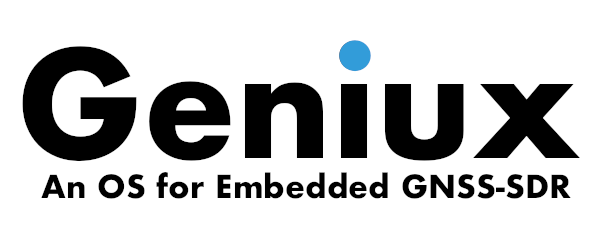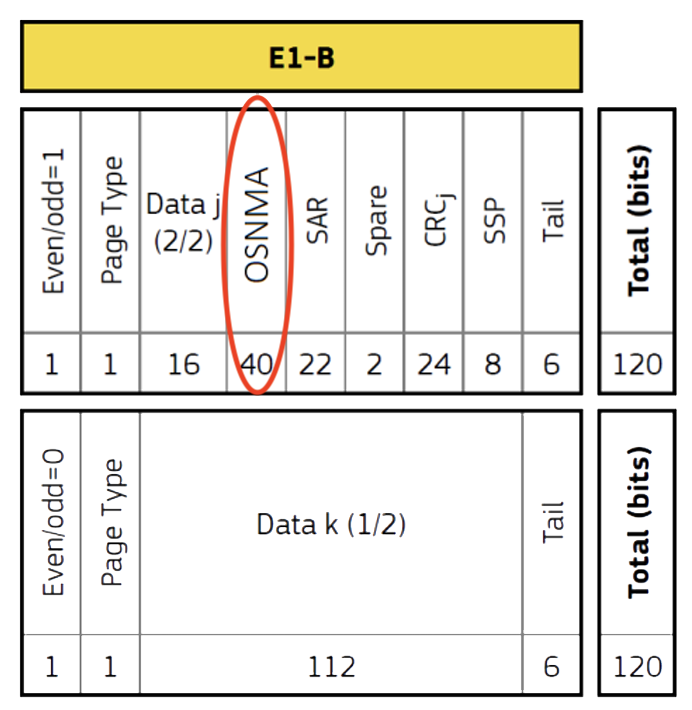GNSS-SDR v0.0.18 released
This release provides bug fixes and new features. Most relevant changes with respect to the former release are listed below:
Improvements in Accuracy:
- Processing and application of the corrections provided by the Galileo High
Accuracy Service (HAS) to the PVT solution. It requires at least a Galileo E1
(or E5a) + Galileo E6B configuration. A new configuration parameter
PVT.use_has_corrections, set totrueby default, can be used to deactivate the application of HAS corrections but still retrieve the HAS data if set tofalse.
Improvements in Availability:
- Fixed bug that made the PVT block to not resolve position anymore after a loss of samples event.
- Improved non-coherent acquisition when
Acquisition_XX.blocking=false. - Implemented processing of BeiDou PRN 34 up to PRN 63 signals.
- Implemented Hamming code correction for Glonass navigation message.
- Now the first iteration of the PVT computation is initialized by the Bancroft
method. This allows to get PVT fixes in some unusual geometries (e.g.,
GNSS-like signals transmitted by LEO satellites). This initialization is
performed by default. You can opt-out by setting
PVT.bancroft_init=falsein your configuration file.
Improvements in Interoperability:
- Enabled PVT computation in the Galileo E5a + E5b receiver. Observables reported in the RINEX file.
- Fixed PVT computation in the Galileo E5b-only receiver.
- Get E6B observables and PVT solutions in the Galileo E1B + E6B receiver. Decoding of HAS messages as described in the HAS SIS ICD v1.0. Generation of RTCM 3.2 messages from the received HAS messages in the IGS State Space Representation (SSR) Format. Specifically, it generates messages of type IGM01 (SSR Orbit Correction), IGM02 (SSR Clock Correction), IGM03 (SSR Combined Orbit and Clock Correction), and IGM05 (SSR Code Bias).
- Added a
ZMQ_Signal_Sourcefor working with streams of samples published via ZeroMQ. - Fixed register unpacking for Labsat3W files in
Labsat_Signal_Source. This fix is only available if gnss-sdr is linked against Boost >= 1.58.0.
Improvements in Maintainability:
- The now archived GPSTk toolkit, used in some optional tests and applications, has been replaced by the new GNSSTk C++ Library. Compatibility with the former GPSTk toolkit is maintained.
Improvements in Portability:
- Improved detection of the BLAS library under macOS / Macports (the
lapackport dependency installed with the+openblasvariant does not installblasbutopenblas, which is used as a replacement ifblasis not found). - Removed duplicated files in the Secure User Plane Location implementation, which caused issues when linking with some compilers.
- Added support for Xilinx’s Zynq UltraScale+ devices (requires the
-DENABLE_FPGA=ONbuilding option). - Fixed running time error if the
gnss-sdrbinary and/or the GNU Radio libraries were built with the-D_GLIBCXX_ASSERTIONScompiler option. This is added by default in some GNU/Linux distributions (e.g., ArchLinux and Fedora). - Fixed linking against libunwind when the glog library is built locally.
- The configuration options at building time
-DENABLE_OWN_GLOG,-DENABLE_OWN_ARMADILLO, and-DENABLE_OWN_GNSSTKcan now be switchedONandOFFwithout the need to start from an empty building folder. - Improved CMake handling of the spdlog library used by GNU Radio >= 3.10.
- Make use of the C++20 standard if the environment allows for it.
- Improved passing of compiler flags to
volk_gnsssdrif the corresponding environment variables are defined. This fixes warnings in some packaging systems. - Improved support for the RISC-V architecture.
- Test files are now downloaded at configuration time instead of being included
in the source tree. This allows for a smaller package and fixes Lintian
very-long-line-length-in-source-filewarnings since those files were not recognized as binaries. The configuration flag-DENABLE_PACKAGING=ONpassed to CMake deactivates file downloading. - The
ENABLE_GENERIC_ARCHbuilding option was removed, simplifying the process of building the software in non-x86 processor architectures. - If the Protocol Buffers dependency is not found, it is downloaded, built and statically linked at building time. If CMake >= 3.13 and the Abseil C++ libraries >= 20230117 are installed on your system, Protocol Buffers v22.2 will be used. If those requirements are not met, Protocol Buffers v21.4 will be used instead (requires autotools).
- Since Debian 8 “Jessie”, which enjoyed Long Term Support until the end of June 2020, is not anymore in the Debian official repositories, we drop its support.
- Fixes for GCC 13 and Clang 16.
Improvements in Usability:
- Fixed large GLONASS velocity errors and the extended correlator when using the
GLONASS_L1_CA_DLL_PLL_C_Aid_TrackingandGLONASS_L2_CA_DLL_PLL_C_Aid_Trackingimplementations. - The
UHD_Signal_Sourcelearned a new parameterotw_formatfor setting the over-the-wire data format (that is, the format used between the device and the UHD) in some devices, thus allowing to select thesc8format instead of the defaultsc16. This would reduce the dynamic range and increase quantization noise, but also reduce the load on the data link and thus allow more bandwidth. - The
UHD_Signal_Sourcelearned another two optional parameters:device_recv_frame_sizeanddevice_num_recv_framesfor overriding transport layer defaults. - Added gain setting and reading for the XTRX board when using the
Osmosdr_Signal_Sourceimplementation of aSignalSource. - The
Osmosdr_Signal_Sourceimplementation learned a new parameterif_bwto manually set the bandwidth of the bandpass filter on the radio frontend. - The new configuration parameter
Channels_XX.RF_channel_IDallows to specify the signal source per channel group. - New configuration parameter
PVT.use_unhealthy_sats, set by default tofalse, allows processing observables of satellites that report an unhealthy status in the navigation message if set totrue. - Added the Geohash of the PVT solution in the internal logs.
- Allowed the CMake project to be a sub-project.
As usual, compressed tarballs are available from GitHub and Sourceforge.
In order to make GNSS-SDR more easily referenced, and to promote reproducible research, each software release gets a Digital Object Identifier provided by Zenodo. The DOI for GNSS-SDR v0.0.18 is 10.5281/zenodo.7805514.




Leave a comment